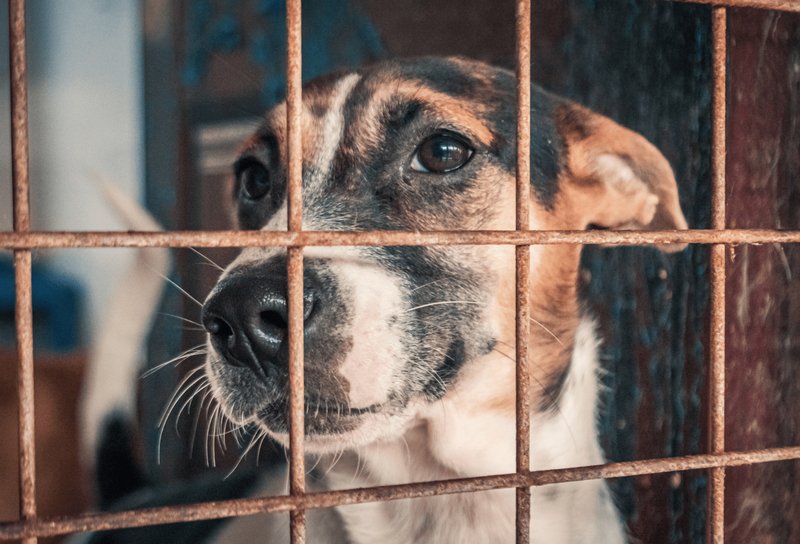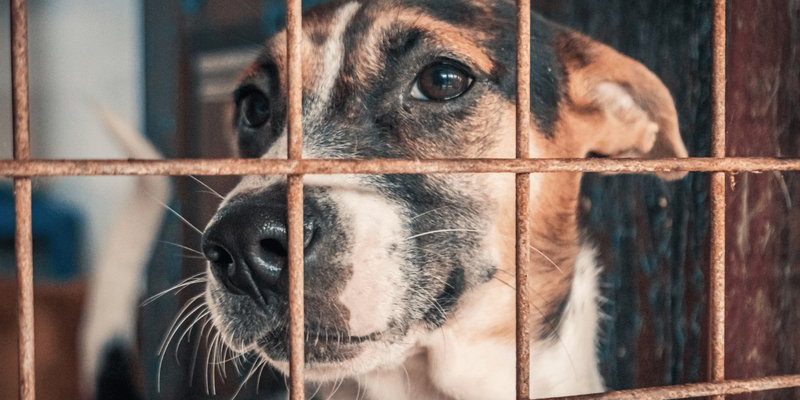
So, how do you keep these unwanted guests at bay? Think of it like a series of preventive measures—like putting on sunscreen before a day in the sun. Just as the sunscreen protects your skin from harmful rays, following some simple steps can protect your dog from wolf worms. In this guide, we’ll explore effective ways to **prevent wolf worm infestations in outdoor kennels**, focusing on practical tips and insights that you can implement easily.
Understanding Wolf Worms: What They Are and Why They Matter
Let’s start with the basics. Wolf worms, scientifically known as **Cuterebra**, are fly larvae that can invade the skin of your dog, especially in areas where they might be exposed to the outdoors, like a kennel. These little critters thrive in grassy or wooded areas, making outdoor spaces a potential breeding ground. Unlike other pests, wolf worms don’t just cause temporary discomfort; they can lead to serious infections if left untreated.
You might be wondering, “What gives these worms their name?” Well, they earned the nickname because they can sometimes affect wild animals like wolves and other mammals. But don’t be fooled; they’re just as happy to make a meal out of our domestic pets too. Keeping your dog safe means understanding these critters and taking steps to minimize their risks.
Identifying Signs of Infestation
You might think wolf worms are easy to spot, but they’re sneaky little things! Often, the first sign of a problem might be a sudden change in your dog’s behavior. Here are some signs to look out for:
- Unusual scratching or biting at the skin.
- Swelling or redness in specific areas of the skin.
- Unexplained lethargy or changes in appetite.
- Visible lumps or lesions on the skin.
If you notice any of these symptoms, it’s time to take action. Just like you wouldn’t ignore a sore tooth, don’t brush off potential wolf worm infestations. Early detection makes all the difference in treatment success.
Cleanliness is Key: Keeping the Kennel Spotless
Just like you keep your kitchen clean to avoid unwanted pests, your outdoor kennel requires regular maintenance to prevent wolf worms. Here’s the thing: flies are attracted to dirt, feces, and leftover food. Regularly cleaning your dog’s space is a proactive way to deter these nuisances.
**Here are some cleaning tips:**
– **Remove Waste Daily:** Pick up any droppings or debris each day. This minimizes odors and makes the area less appealing to flies.
– **Disinfect Surfaces Weekly:** Use pet-safe disinfectants to clean kennels and surrounding areas. This helps eliminate any potential larvae or eggs that might be lurking.
– **Limit Food Exposure:** Avoid leaving food outside longer than necessary. If your dog doesn’t finish their meal, bring it in as soon as they’re done.
If cleaning feels like a chore, try to set a routine. Maybe clean the kennel every Sunday morning while sipping your coffee. Before you know it, it’ll become second nature.
Secure the Kennel: Building a Fort Against Infestations
Think of your dog’s kennel as their safe haven. Just like a good fortress, it should be designed to keep unwanted guests out. Here are some effective strategies for building a **fortress against wolf worms**:
– **Use a Solid Base:** Make sure the kennel is raised off the ground. This minimizes contact with the soil where larvae might be hiding.
– **Install Screens or Covers:** Adding screens to windows and ensuring the door closes tightly keeps flies out. Think of it like adding a protective shield to your home.
– **Choose Appropriate Materials:** Use treated wood or other materials that repel insects. This can enhance the durability of the kennel as well.
Taking the time to secure the kennel can pay off tremendously in keeping out wolf worms and other pests. Plus, your dog will appreciate the cozy retreat!
Use Natural Repellents: A Layer of Defense
You might be wondering, “Can I really use natural products to keep wolf worms away?” Absolutely! Natural repellents can add an extra layer of protection without harsh chemicals. Here are a few effective options:
– **Essential Oils:** Oils like **lavender**, **rosemary**, and **eucalyptus** can help deter flies. Mix a few drops with water in a spray bottle and lightly mist the area around the kennel.
– **Diatomaceous Earth:** This natural powder can be sprinkled around the kennel. It works by dehydrating insects that come into contact with it, making it a safe option for both dogs and the environment.
– **Herbs:** Consider planting some **herbs** like basil or mint near the kennel. Not only do they smell nice, but they can also repel flies.
Using natural repellents makes it simpler to guard against infestations without exposing your pet to chemicals. Let’s keep it safe and simple!
Regular Check-Ups: Health is Wealth
Just as you make regular trips to the doctor for health check-ups, your dog’s kennel also deserves attention. Scheduling routine inspections helps catch any signs of infestation before they become a problem.
During these check-ups:
– **Inspect for Signs:** Look for any visible signs of wolf worms or other pests.
– **Check the Skin:** If your dog has been spending time in the kennel, give them a once-over. Look for any unusual bumps or lesions.
– **Consult Your Vet:** If you have any concerns or your dog shows symptoms, don’t hesitate to consult your vet. Regular veterinary care can enhance your dog’s overall wellness.
Preventing wolf worms is an essential part of keeping your dog healthy and happy. A happy dog means a happy owner!
Preventing wolf worm infestations in outdoor kennels doesn’t have to be a daunting task. With a little understanding, consistent cleaning, secure building practices, and regular check-ups, you can create a safe and welcoming environment for your dog.
Remember, by taking proactive steps, you’re not just protecting your pet from infestations; you’re showing them love and care. So, grab your cleaning supplies, invest a little time in your outdoor space, and rest easier knowing you’ve got your bases covered. Your dog will wag its tail in gratitude!

